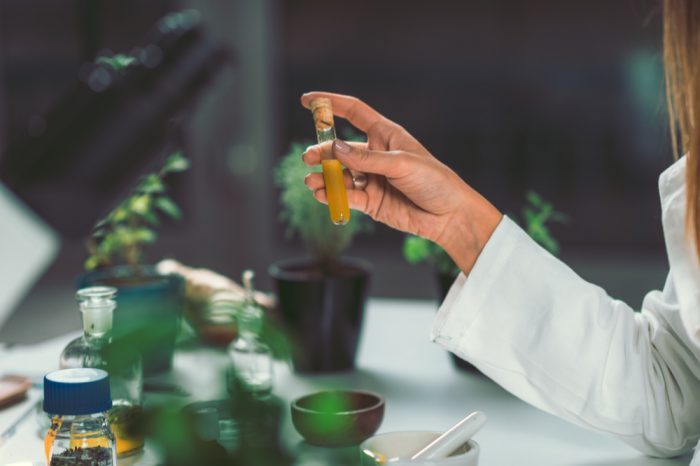Modern healers employ a holistic approach to healing, one that involves facing the underlying pain – not just the symptoms.
There’s no doubting the many benefits of living in developed capitalist economies. Many of the common hardships experienced in times gone by are no longer a thing these days. But, while we may have life easier in some aspects, we suffer more in other ways. Our advancements come at a cost. People forget that real medicine isn’t just swallowing a pill to cover over the symptoms; that real food never came wrapped in plastic with a six-month expiry date; that intimate social contact doesn’t come through a screen; and that feelings of true self-worth don’t come from likes and shares. Thankfully, modern healers remember a time before all this.
We’ve made great technological advancements in healthcare, food production, and how we communicate. But we’ve never been more addicted, obese, stressed, and disconnected from reality. After several centuries of collectively idealizing an intellectualized approach to interpreting the world around us, we find ourselves at a crossroads. Despite our progress as a species, we’ve lost touch with some important aspects of what it means to be human, and as a result, don’t realize the need for deep healing until our bodies send up signals of deep distress.
A Holistic Approach to Healing
Modern healers embrace a much more holistic approach to healing and health. Modern healers understand that humans are complex creatures and that there’s a lot more driving their collective behavior than first appears.
Six million years of biological evolution transformed us from the chimp-like apes swinging from trees that we once were, to bipedal hominids that developed abnormally large brains. But, what many fail to appreciate is that we also underwent an evolution of the psyche.
When defunct vestigial organs, like our wisdom teeth or appendix give out, we all know we need to act fast or face dire consequences. In some ways, we carry the same baggage within our psyche. Modern healers know that we still retain a tangible connection to that ancestral past. They also know that it represents some of our most fundamental needs in life, like connection, love, and belonging.
Due to our modern ways, many don’t get those needs met. As a result, many begin to dissociate from fundamental parts of who they are and what they need. The job of a modern healer is to reconnect us in the quest to have those primal needs met. They provide us with the means to feel more deeply into those other ways of being that lie just beneath the surface.
Modern Healers: Liz Vasquez
One example of someone trying to reconnect people with their healing path is Liz Vasquez. Liz is a chef, a cannabis enthusiast, and a private plant medicine coach who appeared on Netflix’s Cooked with Cannabis.
Liz is inspired by a more traditional approach to healing. Consequently, hers involves the use of ancient plant allies coupled with proven therapy techniques. Depending on the nature of a client’s problems, Vasquez invokes a combination of cannabinoid therapy, psychedelic therapy, and talk therapy to help people work their way through deep-rooted trauma.
Liz uses an individualized approach to healing. Liz understands that the root cause of any illness is often multifaceted. Correspondingly, her approach to healing is targeted and personalized. By taking into consideration existing underlying conditions, the patient’s current situation, preferences, and concerns, she provides them with a personalized approach to healing, where daily journaling and access to someone willing to listen form an important part of the protocol.
Much of her work involves identifying and processing traumas. Her treatments involve a mindful approach to healing. They may include cannabis, journaling, talk therapy, and may even call for the use of psychedelics, most notably psilocybin, the active compound in magic mushrooms.
Most people who work with her are already committed to healing and are firmly committed to their path. Her techniques primarily serve to expedite the process in helping one delve deeper into what lies trapped within the unconscious mind.
The Future of Healing
In an ideal world, this might be the future of healing. Cannabis legalization continues to spread and the increased societal awareness of responsible psychedelic use is also gaining traction. Therefore, it seems likely that society will come to embrace ancient plant allies as a path to healing.
In the meantime, science still has a way to go before fully understanding the workings of the plants and the nature of the human mind. On top of that, there’s a strong societal alliance with the pharmaceutical model in almost all countries around the globe. While pharmaceuticals do save countless lives every day, few can argue that it’s a model based on healing the whole person.
There’s undoubtedly a price to pay when society chooses a path to healing that revolves around only managing symptoms, and never reaching the root causes. But, this is what true healing involves; to go down into the depths and feel the pain of unmet needs. Then, come back out the other end. The modern healers who undertake such work know all too well that healing is a process of humble self-improvement. They know that ultimately it serves to benefit the collective masses. And if it requires a plant and some hard conversations with a healer, then that’s what it takes!





